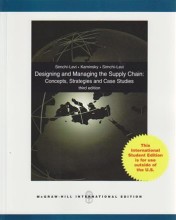Summary: The Eu And The World: Players And Policies Post-Lisbon. A Handbook
- This + 400k other summaries
- A unique study and practice tool
- Never study anything twice again
- Get the grades you hope for
- 100% sure, 100% understanding
Read the summary and the most important questions on The EU and the world: players and policies post-Lisbon. A Handbook
-
1 Understanding EU policy
-
Why is it that some claim that the EU cannot be understood by the use of general IR theories?
The EU is too much of an unique concept and new theories are necessary to understand it -
1.1 Power and anarchy
-
What is the main idea of realism in IR?
States have a difficult time cooperating on things as foreign policy, security and defence. States have to protect themselves because there is no main world government that will protect them -
What is the result of anarchy according to Neo-realists?
A balance of power between states and the objective of international relations is a constant endeavour to ensure that no single state or group of states becomes powerful enough to endanger the security of others -
What is, according to neorealists, wrong with the Common Security and Defence policy of the EU?
It does nothing to help overcome the need of states to protect themselves. At the time it was founded, there was no imminent threat to security in Europe (no meaning for it to develop) -
How does classical realism, contrary to some neo-realist scholars, view the cooperation of European states in the EU and the CSDP?
As a symptom of the weaknesses of the individual states of Europe, and not as an attempt to counterbalance the US -
1.2 Cooperation and integration
-
What is the basic assumption that liberalism shares with realism in theorising about IR?
That international relations are anarchical and that states are the main actors -
Where does liberalism differ from realism in theorising about IR?
Liberalism rejects the idea that international relations are marked by power politics. It states that anarchy would not directly lead to military confrontation because cooperation is equally possible -
What argues the democratic peace theory, which is important for understanding the cooperation between the EU-states?
That democracies do not go into war with each other -
Why do liberals find cooperation something that states, like those in the EU, should strive for, even despite the possible challenges it brings?
Regional and international cooperation affords the most effective way of dealing with global problems. -
What does the functionalist understanding of Eu-cooperation argue?
That, even though it is not the case right now, the EU will formulate a policy on security because when they cooperate in one area, it will spill-over to other areas
- Higher grades + faster learning
- Never study anything twice
- 100% sure, 100% understanding
Topics related to Summary: The Eu And The World: Players And Policies Post-Lisbon. A Handbook
-
Understanding EU policy - Ideas and culture
-
The institutional frame - the big picture
-
The institutional frame - the HR/VP - the Solana era (1999-2009)
-
The institutional frame - the EEAS - from the commission
-
The institutional frame - the EEAS - the shaping
-
The functional scope - CSDP operations and missions
-
The functional scope - Civilian capabilities and civil protection - the civilian dimension
-
The functional scope - Defence capabilities and industry
-
The functional scope - Non-proliferation and dual-use
-
The functional scope - trade and development
-
The functional scope - energy and environment - energy and foreign policy






























